Why Acetone Is a Key Solvent in Manufacturing
- Addtime: 2025-08-14 / View: 526
In the modern industrial world, the choice of solvent plays a crucial role in determining the quality, efficiency, and safety of manufacturing processes.
Acetone, also known simply as acetone, is one of the most widely used organic solvents in global manufacturing. With its unique chemical properties, high solvency power, and versatility, Acetone has become indispensable in industries ranging from pharmaceuticals to plastics, coatings, electronics, and cosmetics.
This article explores why Acetone is considered a key solvent in manufacturing, how it is produced, the benefits it offers, and its diverse industrial applications.
Understanding Acetone
Acetone (chemical formula: C₃H₆O) is a clear, colorless, and highly volatile liquid with a distinct, mild odor. It is classified as a ketone, a group of organic compounds characterized by a carbonyl group bonded to two carbon atoms. Its high evaporation rate and ability to dissolve a wide range of substances make it a highly effective solvent.
The compound is miscible with water and most organic solvents, which allows it to blend easily in various formulations. Whether used for thinning, cleaning, or as a chemical intermediate, Acetone is prized for both its performance and cost-effectiveness.
How Acetone Is Produced
In industrial settings, Acetone production is primarily achieved through the cumene process. This involves the oxidation of cumene (isopropylbenzene) to cumene hydroperoxide, which is then split into acetone and phenol.
Other production methods include:
Catalytic dehydrogenation of isopropanol – Common in regions with an abundant isopropanol supply.
Fermentation processes – A sustainable, bio-based approach using certain bacterial strains to produce acetone alongside butanol and ethanol.
The choice of production method often depends on raw material availability, cost factors, and environmental regulations.
Why Manufacturers Choose Acetone
Manufacturers rely on Acetone because of its exceptional solvency power, safety profile (when used correctly), and versatility. Some of its most important advantages include:
a) Excellent Solvent Properties
Acetone can dissolve a wide variety of natural and synthetic substances, including resins, oils, fats, waxes, plastics, and cellulose derivatives. This makes it ideal for formulating coatings, adhesives, and cleaning agents.
b) High Volatility
Its fast evaporation rate allows for quick drying in paints, inks, and coatings, improving production speed without leaving harmful residues.
c) Compatibility with Other Chemicals
It blends seamlessly with alcohols, esters, and other ketones, making it a flexible component in complex formulations.
d) Cost-Effectiveness
Compared to many specialty solvents, Acetone offers excellent performance at a relatively low cost, making it attractive for large-scale manufacturing.
e) Lower Environmental Impact (Relative to Some Solvents)
While still flammable, acetone is less toxic and has a shorter atmospheric lifetime compared to chlorinated solvents, reducing long-term environmental impact.
Key Industrial Applications of Acetone
The versatility of Acetone means it finds application across a wide range of industries:
1) Paints, Coatings, and Adhesives
Its fast-drying and powerful solvency properties make Acetone Propanone an ideal thinner for paints, lacquers, and varnishes. In adhesives manufacturing, it ensures proper viscosity and strong bonding performance.
2) Pharmaceuticals
In the pharmaceutical industry, Acetone Propanone is used for drug formulation, purification, and as an extraction solvent for active ingredients. Its high purity grades meet stringent industry standards.
3) Plastics and Synthetic Fibers
It plays a critical role in dissolving and processing polymers such as cellulose acetate and in producing synthetic fibers used in textiles.
4) Electronics Manufacturing
Acetone Propanone is a preferred cleaning agent for removing grease, flux, and other residues from electronic components during production.
5) Cosmetics and Personal Care
In nail polish removers, Acetone Propanone is valued for its ability to dissolve resins and pigments effectively without damaging the nail surface when properly formulated.
6) Laboratory and Research
As a standard laboratory solvent, it is used in chromatography, chemical synthesis, and sample preparation due to its consistent purity and predictable evaporation rate.
From dissolving resins in paints to cleaning delicate electronics and serving as an intermediate in pharmaceutical production, Acetone is one of the most important solvents in modern manufacturing. Its combination of strong solvency, fast evaporation, chemical compatibility, and affordability makes it a preferred choice across diverse industries.
As technology advances and sustainability becomes a greater priority, innovations in bio-based production and solvent recovery will further enhance Acetone Propanone’s role in the industrial world. For manufacturers seeking efficiency, versatility, and reliability, Propanone remains a solvent of choice — and its importance shows no sign of fading.
At Inter Haven Chain Tech, we specialize in the production and manufacturing of high-quality Acetone Propanone for diverse industrial applications. With advanced technology, strict quality control, and a commitment to customer satisfaction, we deliver reliable solvent solutions that help manufacturers achieve superior performance.






